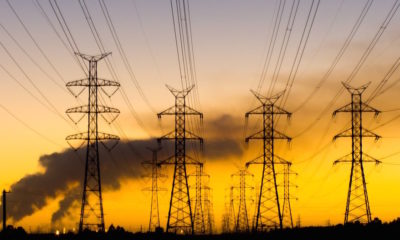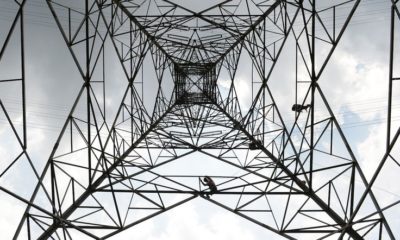As major parts of Nigeria continue to complain of blackout, the Federal Government has revealed that Electricity utility firms otherwise known as the DisCos had a total of 1,070.36 megawatts unused between December 24 and December 30, 2022.
For most Nigerians, prolonged power outage they experience could be attributed to lack of sufficient megawatts within the reach of the power utility companies.
Discos had lamented low power supply from generating companies (GenCos), which they attributed the blackout to.
While blaming GenCos for the incessant drop in electricity supply, DisCos through a statement from Ikeja Electric said it has been shedding load owing to low power allocation.
The General Manager of the Corporate Communication Department, EKEDC, Godwin Idemudia, while apologising to customers, especially those affected by the power outage, lamented a sharp decrease from the electricity it gets from the grid, saying it was not enough to meet the demand of its customers.
Hence, the continued lamentation of electricity consumers who are at the receiving end of the excuses proffered.
But, contrary to the argument and excuse adduced by EKEDC, latest power utilisation data obtained from the Transmission Company of Nigeria, an agency of the Federal Government, revealed that the Discos did not utilise the over 1,070MW of electricity between December 24 and December 30, 2022.
Nigeria has 11 Discos including Abuja, Benin, Eko, Enugu, Ibadan, Ikeja, Jos, Kaduna, Kano, Port Harcourt and Yola.
Figures from TCN showed that there are electricity that utility firms were not releasing to electricity consumers.
On December 24, 2022, the figures showed that a total of 118.04MW of electricity was unused by Enugu, Ibadan and Port Harcourt Discos, while the eight other power distributors took and distributed excess load on that day.
Also, on December 25, nine power distributors obtained excess load allocation, but two others including Enugu and Ibadan, could not distribute a total of 93.73MW of electricity.
However, the next day, being December 26, the quantum of unutilised energy increased, as seven Discos, including Abuja, Benin, Enugu, Ibadan, Jos, Kano and Port Harcourt, failed to distribute a total of 198.82MW of electricity.
While four companies took excess load allocation, according to TCN’s data, six of the power firms were said to be unable to distribute 180.99MW of electricity on December 27, as the remaining five took excess load allocation.
The data further revealed that the six Discos that could not distribute the 180.99MW of electricity include Abuja, Enugu, Ibadan, Jos, Kano and Port Harcourt.
The transmission company further stated that five distribution companies comprising of Benin, Enugu, Ibadan, Jos and Port Harcourt, could not distribute 89.09MW of power on December 28.
TCN stated that five Discos accepted excess load allocation that was more than their maximum load nomination for that particular day.

 Billionaire Watch3 weeks ago
Billionaire Watch3 weeks ago
 Startups4 weeks ago
Startups4 weeks ago
 News4 weeks ago
News4 weeks ago
 News4 weeks ago
News4 weeks ago
 Bitcoin4 weeks ago
Bitcoin4 weeks ago
 Naira4 weeks ago
Naira4 weeks ago
 Forex3 weeks ago
Forex3 weeks ago
 Treasury Bills4 weeks ago
Treasury Bills4 weeks ago

























